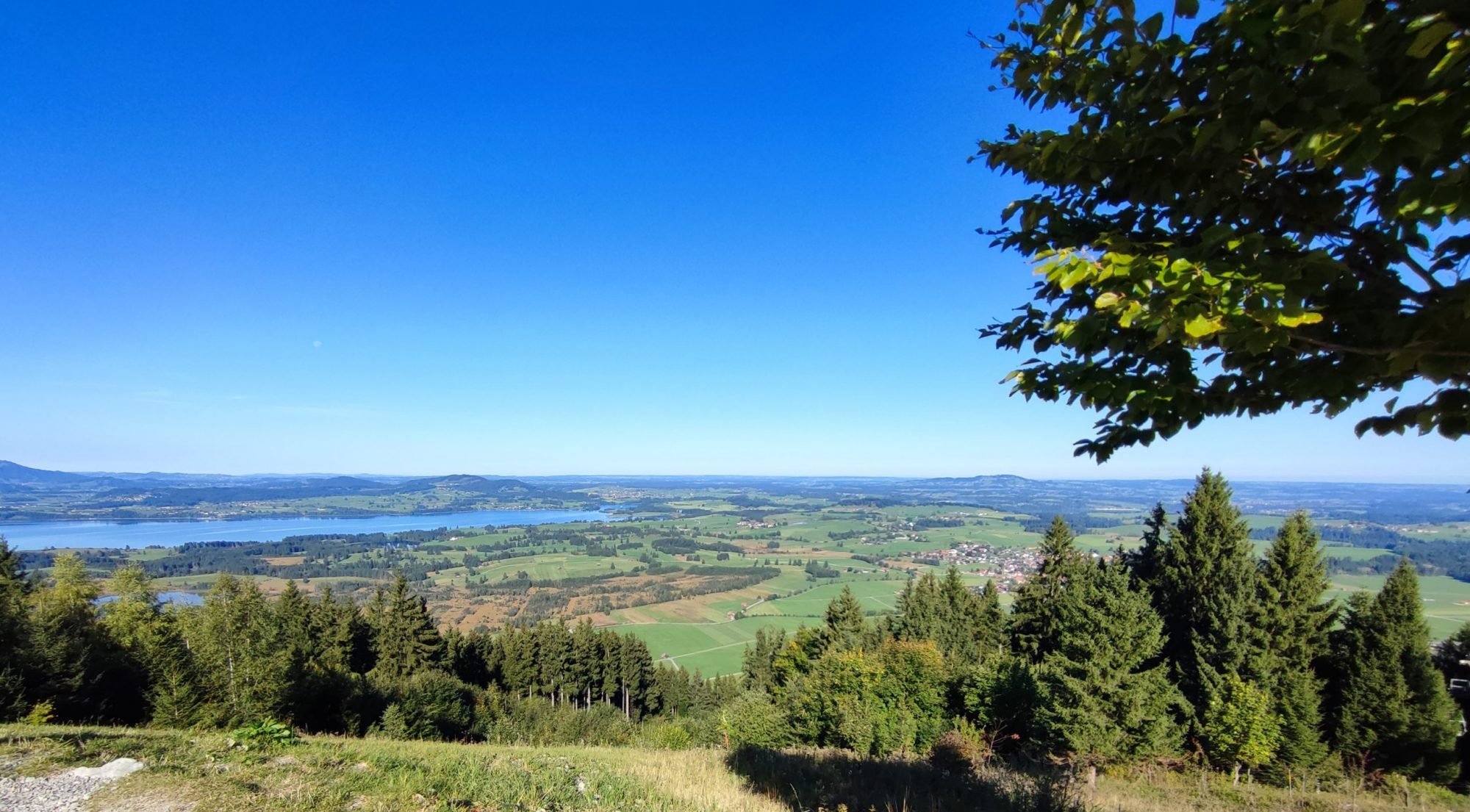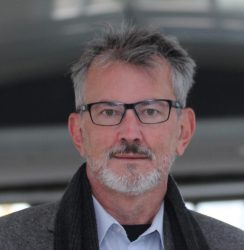12. 04. 2011 Ankunft bereits am Mittwoch, nach einer amüsanten Zugfahrt mit @mahrko und @alipasha. Das Hotel ist gut, allerdings geheizt, als wolle man daraus eine Sauna machen. Erst mal einchecken und dann auf zum St. Oberholz zum Vorglühen und einer Diskussionsrunde darüber, wie die Netzpolitik im Ausland gesehen wird. Es entwickeln sich sehr spannende Diskussionen über Netzneutralität, die Zensurbestrebungen der EU und von Frankreich, die mit Hadopi ein ziemlich zwielichtiges Gesetz inthronisiert haben. Einen ganz großen Dank an Jérémie Zimmermann, der uns einen sehr guten Überblick über die momentane Situation in der EU gab, was Themen wie Netzneutralität, Zensur und Copyright angeht. Meine Quintessenz, ich muss mich sehr viel stärker mit ACTA beschäftigen, da dort etwas instanziiert werden soll, das in dieser Form hochgradig problematisch ist.
13.04.2011: Aufstehen, Rucksack packen (3fach Steckdose ja nicht vergessen) und dann los zu Tag 1 der re:publica. Die Tore öffnen um 09:00 Uhr für den Checkin
Ab hier meine Live-Notizen aus den Vorträgen, sie werden später noch um eigene Gedanken und Erkenntnisse aus Gesprächen am Rande der re:publica ergänzt.
Live blogging Notes:
Vortrag 1: Design Thinking
Design will auch Dinge verbessern…
Hackfwd – Plattform für die Firmengründung
Design muss sich stets am Menschen orientieren, Design das der Mensch nicht anwendet, weil es besser ist ist sinnloses Design.
Hyperbewusstsein über Probleme dieser Welt.
reset (Plattform)
innocentive.com Innovationsplattformen
openideo als Innovationsplattform für soziale und Umweltthemen
Integration von Ideen ist nicht crowdsourcingtauglich, aber die Bewertung funktioniert.
Geld ist nicht der richtige Motivator
„Buchtitel->DRIVE“
Das Incentive beeinflusst die Motivation
Design Quotient
Vortrag 2: Anonymous
Sources are Trolling sort of crowd sourced distribuded trolling and hacking
Two main targets, Scientology and Wikileaks defence. (starting with pirate bay before wikileaks but shifting
Auch in Tunesien war Anonymous aktiv, um den Menschen zu helfen, sich zu schützen!
„Ebenfalls in Ägypten aktiv. If the government shuts down the internet, shut down your government.
„Some rise by sin and some by firtue fall.“ Shakespeare
Look for the lulz
Annonet and AnonOps
Even Anonymous has certain fundamental ethics regarding violence.
Anti leader, anti celebrity attitude of anonymous. The problem is with concentration of power. Its sort of an ethic of anonymous
There is no leader, there is no one famous
Anonymous is a good example on how to build a political gateway to take action other than the traditional way, anyone can do a part in the process, according to the talents they have.
But it is a very non buerocractic way to take action and anyone can join.
We need sort of a code a lingua franca that even connects the generations.
Vortrag 3: Schwärme und Web2.0
Schwärme von Internetnutzern können neue Orientierung bieten.
Schwarmstrom.
Lichtblick seit 13 Jahren.
Märkte sind Gespräche
Aber viele Unternehmen lassen nicht mit sich reden
Blog bei Lichtblick, ist frei für die Mitarbeiter und Kommentare werden ungefiltert freigeschaltet.
Kunden definieren Marken und zwar im Web-Gespräch (Urteil der Kunden prägt die Marke stärker als die Werbung)
Wirtschaftlicher Erfolg basiert auf Glaubwürdigkeit
Aber nur wer Ökonomie und Nachhaltigkeit glaubwürdig konsequent verbindet ist es auch.
Parallel zur Demokratisierung durch Web 2.0 demokratisiert sich die Energieerzeugung
Intelligentes Energiemanagement ist entscheidend für die Energiewende
Aber „Smart Energy“ ist heute oft nur ein Marketing-Gag
Lichtblick hat mit SchwarmStrom aus ZuhauseKraftwerken intelligente Energie etabliert
Und:Das Konzept funktioniert schon heute.
2 Atomkraftewerke = 100000 Zuhause Kraftwerke. Dabei sehr hohe Energieeffizienz
Web 2.0 kann die Energiewende kritsch begleiten
Und vor allem: beschleunigen
—————————————————————————————————————
Nachmittag
—————————————————————————————————————
Vortag 4: Modern revolutions are digital revolutions
Africa: Tunisia, Egypt and Libya – A signal for the whole of Africa?
Social Media is something, governments do not really understand, cause it publishes without censorship and reaches to the whole world.
The power is there cause those are normal people, thus a mass movement.
A movement needs a way of free communication, and those plattform made communicating very easy.
Self organizing in the real world can be organized informally by social media through different people from all walks of life.
Social media can also be used to spread hat and bad informations.
They are just a medium for the transport. Its the people that make the difference.
The role of AlJazzera varies from country to country. It depends on what the people can see?.
Mobile internet is a very important factor expecially in developing country.
Its a new way of getting in touch with people far away which would never been possible without mobile internet
Environmentalist view, look at civil societies as the source of revolutions, the power to use the tools is just a part of it.
Governments are often out of touch with the reality of the „normal people“, the citizens.
It is the interconnection with people all over the world that makes the difference. People all over the world supported the revolutions way before their governments did.
It is also about the link between the revolutions taking place and the „outside“ countries spreading the word.
It was also a revolution of the young, turning of the internet was like a signal for even worse to come.
Censorship is very dangerous
After the revolution the most important is to keep „things“ running to make sure, there is money to actually realize the change to have the finanical ressources to pay for the transition.
It is also important to recognize the educational issue of informing the „western world“ about what is going on in the countries under dictatorship and to create a web of support.
(Check the blogger from lybia who won the blog award)
Best of Blog Website
Vortrag 5 Collaborative consumtion
We all hyperconsume
and we design for the dump, isn’t that stupid
All our gadgets are destined to be dumped
BUT this is unsustainable
and we have a rise of self-storage… nooo, i maybe can use it one day.
Germans are not as ill as americans are but we are getting better/worse.
The things we own in the end own us.
Collaborative consumption is about sharing the tools we own. Do you really need all the gadgets every day?
Reduce, reuse, recycle…we all know the recycling sign.
re:duce
re:use
re:cycle
100 items or less??
I will eliminate a large part of stress in my life and I will truly cherish the few things that i own.
Kelly Sutton, Cult of less.
We have to rethink our relationship to material posessions.
Just enough is more.
For many tools its not about owning but using.
Access is often better than ownership.
Do you really need your OWN printer?
There are several services as NeighboorGoods Zipcar CouchSurfing Velib mitfahrgelegenheit.de
Only the few things you use every day should be valuable high quality, the rest, do you really need it?
What do you own which has „idle capacity“ meaning big times of not using it.
If you have two couches couldn’t you share one (couchsurfing)
Design Challenges!!!
Multiple sim cards…can we personalize other objects?? Sharing something personalized??
Diversify Libraries
Open layers: give the raw data and create open Layers. Objects that are easily remixable.
Modular objects, you can take parts away and replace them.
Reconfigurable spaces. A room that can be a bedroom, a kitchen a living room?
Create things that become better through usage. Value trough use?
Get excited and make things.
Vortrag 6: Global Voices
Its a platform to spread information from different blogs in different countries and different languages.
Its what is happening in the world through the eyes of bloggers and Twitterers.
It is about the real story of what mass media show us. Inside jokes, topics that are not always serious but helpful.
The KFC Story shows that a single Blogger can make a change in the way we view another culture.
Twitter can change the view on politicians. The Twitter commentaries on Ghaddafis insane speeches where humorous but also a relief and a way of bonding with each other.
Global Voices focuses on the topics the blogosphere in a special country regards as important. Global Voices is more about translating and spreading than about reporting.
Sometimes its the media that does not care about what bloggers are reporting from the area where bad things happen.
My own opinion: Journalists should not only bash the social media as long as they themselves do only care about the top stories. Bloggers inform about stuff, we in some cases do not report at all.
We need to read about the world, not only about our little area of interest. Bloggers have also the possibility to share in between countries to spread inportant information first hand, unfiltered realistic.
Another issue for a blogging article: What is also important in Japan. Do not forget the people left homeless without a real future after the quake!
Rising Voices is another website to assist new blogging projects.
It is not about the amount of bloggers in a country. Even one Blogger can spread the word to the world and help a movement grow
Important support also takes place to citizen information projects that inform for example about corruption.
Threatened Voices is about crowd sourced information collection on threads and arrests of bloggers…
Global Voices Advocacy follows sentenced bloggers in different countries. We have the luck speak free. Others can’t. We need to help them…
Vortrag 7: Sharing vs Copyright
Ergänzend zu den Notizen vom Vortag.
Wir müssen uns ernsthaft die Frage stellen, ob wir das Internet evtl. ein zweites Mal „entwickeln“ müssen, da im Moment die Infrastruktur des Internets in den (kommerziellen) Händen der großen Internet Provider liegt. Wir haben das Netz bereits ein Mal gebaut. Wir können es auch ein zweites Mal bauen (Freifunk etc.)

